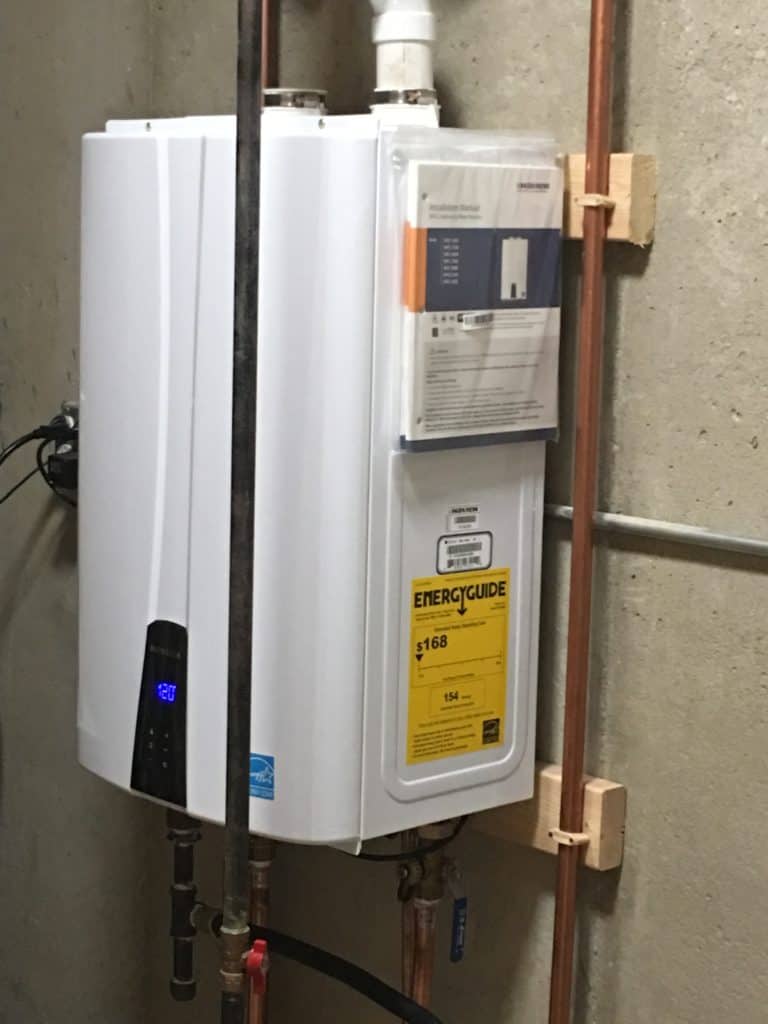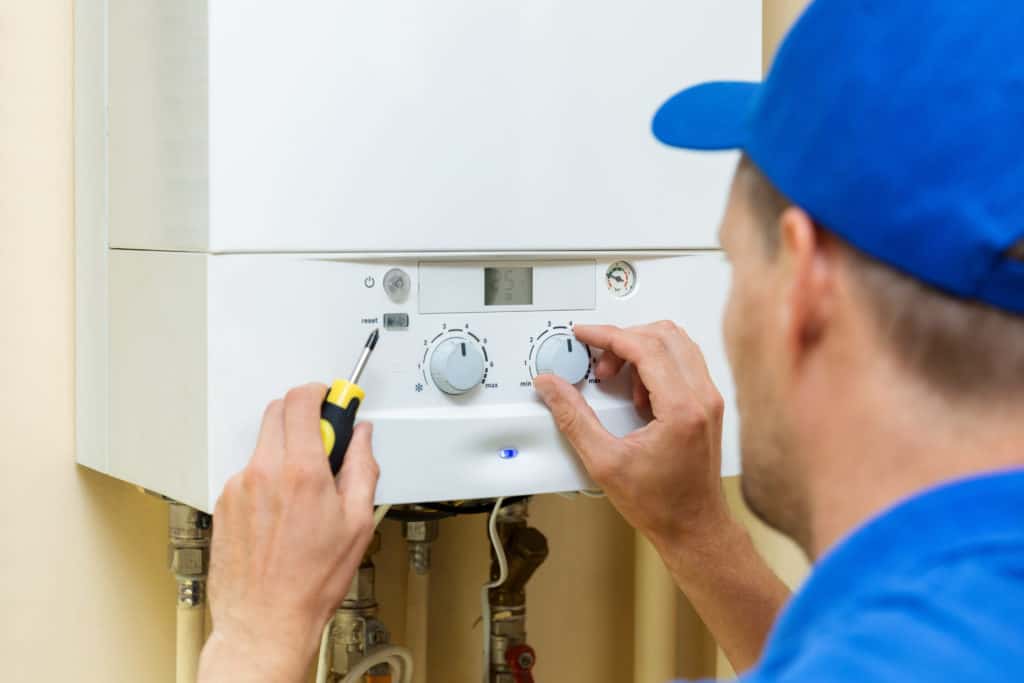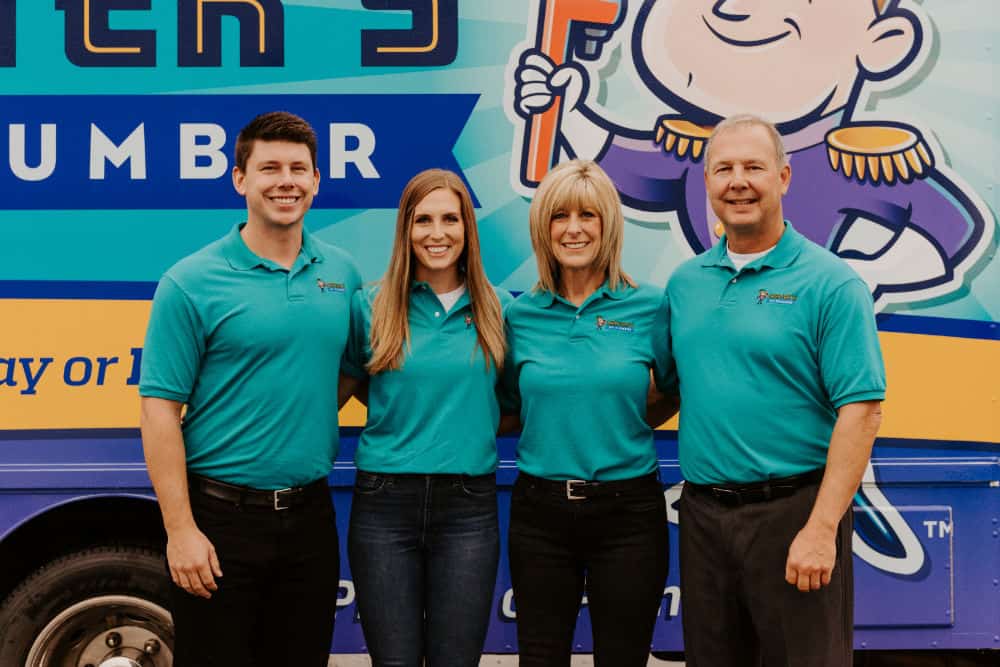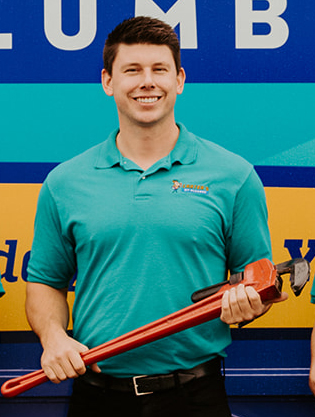Table of Contents
Homeowners have tankless water heaters installed for any number of reasons: To improve energy efficiency, to save space, and to ensure there is always warm water come shower time. Additionally, tankless units tend to offer greater longevity than conventional heaters, especially when paired with the right preventative maintenance strategy. In short, tankless heater installation can be a sound investment for homeowners everywhere.
With all of that said, it’s certainly possible to run into problems or inefficiencies. In this post, we’ll provide insight into some of the most common tankless water heater problems, helping homeowners to troubleshoot their units. Note that some of these issues can be resolved on a DIY basis, while others will require the assistance of a professional plumber.
For tankless water heater installation in Indianapolis or in Greenwood, Indiana, homeowners choose Carter’s My Plumber. We are also happy to perform diagnostic and repair services should your unit ever give you any trouble.

What Causes Tankless Water Heaters to Malfunction?
If your water heater is not working the way it’s supposed to, it could be for any of the following reasons.
Installation Issues
First and foremost, the issue would be that the heater was not properly installed to begin with. Note that tankless water heater installation is fairly complicated, and even some professional plumbers lack the experience to do it properly. If your unit was installed by a novice plumber, or if you attempted to install it yourself, it could be that a simple setup error is to blame for your ongoing problems.
Mineral Buildup
Nothing’s more frustrating than a water heater that gives you inconsistent temperatures, sometimes running hot but other times giving you nothing but cold. There are several factors that can contribute to this, but one of the most common is sediment buildup. This is especially true if you live in an area with hard water.
Limited Flow Rate
It’s important to note that, while tankless heaters can potentially let you run multiple showers or faucets at once, every unit has its limits. If you’re taking a shower, running the dishwasher, and watering your lawn all at once, don’t be surprised when you run into a limited supply of hot water. Installing a water softener may help.
Venting Issues
Another common problem that homeowners face with their tankless heaters is the blockage of exhaust or vents. Most units will provide an error code if this is a concern. If you receive one of these error messages, visually inspect all exhaust and intake lines, ensuring secure connections with no blockages or holes.
Flame Failure
One additional problem to be aware of is the failure of ignition. If your unit is giving you a flame failure error code, that’s likely a problem with the gas line or gas valve. We highly recommend having this issue diagnosed and addressed by a licensed plumber; attempting to handle gas issues DIY can be pretty dangerous.
Cold Water Sandwiches
Tankless water heaters often give their owners a cold water sandwich, which basically means an initial burst of hot water, then a shocking burst of cold, then back to hot. If this is a persistent problem, you may wish to talk with a professional plumber about installing a recirculating system.
Inadequate Maintenance
Tankless heaters come with comparatively little maintenance, especially when compared to more traditional plumbing appliances. With that said, most units will require you to clean or replace the water filter from time to time, and to descale and flush the system. If you’re having performance issues, the problem may be that you simply aren’t carrying out the right maintenance steps. Your plumbing company should be able to offer some tips, or even put you on a maintenance plan.

Other Issues to Consider When Installing Tankless Hot Water Heaters
Beyond these potential maintenance issues, there are a few other considerations that homeowners might want to keep in mind as they decide whether to install a tankless heater at their home.
Quality Products
First and foremost, it’s important to remember that not all tankless units are created equal. To ensure greater longevity and fewer problems, we recommend selecting from high-quality brands. Carter’s My Plumber installs Bradford White units, widely considered to be among the best on the market.
Initial Cost
One of the only major drawbacks to installing a tankless unit is that they tend to be more expensive on the front-end, meaning the initial installation can leave some homeowners with sticker shock. There’s no denying that tankless units are a bit pricier, but consider that they also last longer and usually require less ongoing maintenance, which means they are often the better investment overall.
Power Requirements
While tankless heaters are touted for being more energy efficient, there are some circumstances in which they might actually consume more energy, or require a special power source. Check with your plumber to determine whether you’ll need to worry about any of these issues.
Expertise in Installation
As we noted above, some of the most common problems that tankless heaters face stem from installation issues. The single best way to avoid complications is to find a plumbing company you can trust to provide expert installation, and to help you identify the highest-quality product that fits your household needs.
Frequently Asked Questions About Hot Water Heaters
Do tankless water heaters have a lot of problems?
Actually, tankless heaters are widely considered to be durable and low-maintenance. Any appliance can produce occasional hiccups, but these units are not especially error-prone.
What are the disadvantages of tankless water heaters?
There are plenty of advantages and disadvantages to tankless water heaters. The biggest drawbacks are installation complexity, as well as a fairly high tankless water heater installation cost.
Why is the tankless water heater not staying hot?
The issue could be insufficient gas supply, blocked vents or exhaust, or sediment buildup. Ignition failure could also be the cause of your cold shower problem.
What is the lifespan of a tankless water heater?
With regular maintenance, a tankless heater can potentially last you for 15 to 20 years, in some cases even more.
Is a tankless safer than a tank water heater?
Because they have no holding tank, tankless units actually are a bit safer, bringing with them no risk of overheating or combustion.
Is a tankless water heater good for the whole house?
Tankless heaters can certainly work well to supply whole-house needs, though you’ll want to work with your installation company to determine a unit that’s right-sized to meet the hot water demands of your household.
Does cold weather affect tankless water heaters?
In extreme cold, it is possible for a tankless heater to freeze, though this risk can be mitigated with just a bit of caution and preparation.
Can tankless water heaters overheat?
There are certain scenarios in which a tankless heater can overheat, just like traditional water heaters can. A broken flow sensor is one potential cause. If you are experiencing this problem, make sure you hire a trusted plumber to help you address it, as overheating units can sometimes cause serious risks of burning.



